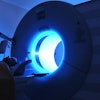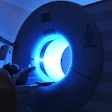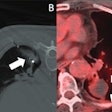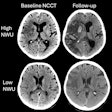
Centralized CT lung cancer screening programs increase the likelihood of annual screening and recommended follow-up among eligible Black individuals, according to a study published February 15 in the Annals of the American Thoracic Society.
The findings highlight the benefits of offering cohesive preventive health services to patients who may not get the care they need, wrote a team led by Dr. Roger Kim of the University of Pennsylvania in Philadelphia.
"Adherence to both annual [lung cancer screening] and recommended follow-up care in our large multicenter cohort of real-world individuals ... was increased at centralized compared to decentralized lung cancer screening programs," the group reported.
In a centralized, or "dedicated" lung cancer screening approach, patients are referred by primary care providers to a comprehensive program that tracks their screening and follow-up. This kind of approach contrasts to a "decentralized" one in which patients are simply referred to the radiology department for the screening exam.
Kim's group sought to investigate compliance with Lung-RADS recommendations among patients who underwent CT lung cancer screening through a centralized or decentralized approach. The study included data on 6,134 patients who were screened for lung cancer with low-dose CT between January 2010 and September 2019 at one of the five healthcare systems part of the Population-based Research to Optimize the Screening Process (PROSPR)-Lung Consortium.
Of these patients, 83.8% had negative baseline exams (Lung-RADS 1 or 2), and 16.2% had positive ones (Lung-RADS 3, 4A, 4B, or 4X). Of the total number of patients with negative baseline scans, 53.4% were screened via a decentralized approach and 46.6% through a dedicated program. Of those patients with positive baseline scans, 44.4% were screened via a decentralized program and 55.6% via a dedicated one.
Adherence to annual CT lung cancer screening and recommended follow-up was lower in patients who underwent screening via a decentralized approach compared with those who were screened via a centralized program; these results were statistically significant.
| Adherence rates for CT lung screening, decentralized vs. centralized programs | ||
| Measure | Decentralized | Centralized |
| Compliance with annual lung cancer screening (negative baseline screening exam) | 34.8% | 76.1% |
| Compliance with recommended follow-up (positive baseline screening exam) | 63.9% | 74.6% |
Among patients with negative baseline lung cancer exams, Black race was associated with a 27% reduced compliance with annual lung cancer screening in decentralized programs, but no such effect was found in centralized programs, the team noted. Among patients with positive baseline lung cancer exams, there was no difference by race for compliance with recommended follow-up care by type of approach.
"[Our study found that] adherence to both annual lung cancer screening and recommended follow-up care was greater at centralized screening programs ... [and that] Black patients were less likely to receive annual lung cancer screening compared to White patients at decentralized compared to centralized lung cancer screening programs," the authors wrote.
The study results underscore the work needed to continue to address healthcare disparities, according to Kim and colleagues.
"[It] is critical for the lung cancer scientific research community to progress beyond simply proving that disparities exist and begin to investigate how to eliminate them," they wrote. "A first step toward achieving this goal is to further elucidate healthcare system-level factors that promote high quality care for all patients."




















